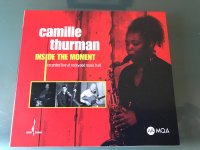Mike,
Long time lurker here, just trying to learn stuff about something I love (music reproduction). My system is very meager by the standards of others here, but I've been able to improve it pretty dramatically without breaking the bank with info gleaned through this exposure.
In the interest of full disclosure, I am not an engineer or audio specialist, please forgive my basic terminology. I had read most of this (and many other articles on the subject) earlier and it really didn't discourage me from the potential of MQA. Using John A's comparison of files, I seem to remember that at least one of the examples he missed was from a later Steely Dan CD. We all know that some CDs just sound better than others and the later Steely Dan CDs are among the best sounding that I own, and I own quite a few. So, it's easy to see how improvements may have been minimal.
At its heart, MQA is basically a .zip file for audio, so it's not really a new idea, but I think many of us might be missing the opportunity here. I have long felt that there was nothing wrong with the theory of digital music, but that implementation might have been flawed. The fact that a file may have been encoded by one brand of ADC only to decoded by a different DAC seems problematic at best. This is a chance for a second chance for much of our recorded music to have a end-to-end solution where problems aren't created at the production end that can't be fully corrected at the player. Maybe those sorts of problems were never introduced to the aforementioned Steely Dan CDs.
Also, while it may be true that file size may not be the issue it once was, I wouldn't agree that there is no benefit to reducing the size of the file in the pipe. Even the advent of hi-res files delivered on a CD is especially appealing to me because I like to own the physical media. I hope it doesn't die an undeserving death just because we don't fully understand the operation of it's proprietary function. It doesn't surprise me that they haven't told the whole world everything.
DT

